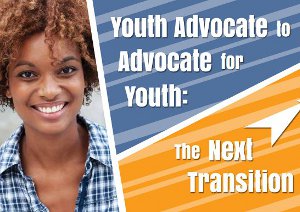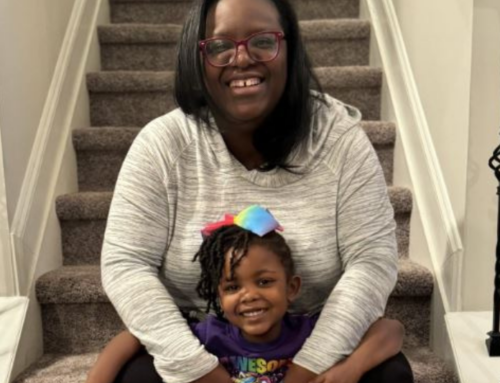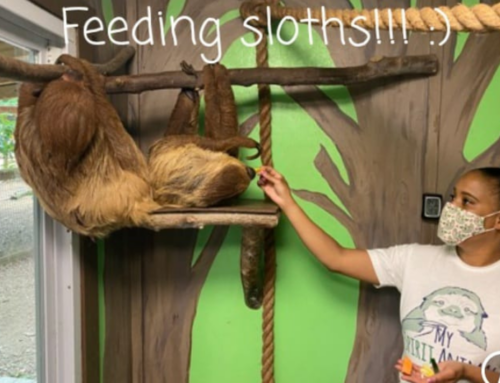As a young professional, when do I choose to offer my lived experience and when do I choose not to? And where does the lived-experience go when I’m not a ‘youth’ anymore? Which part of my lived experience do I choose to offer in this part of the conversation? When should I switch roles? When am I over-sharing? How do I still portray myself as a professional when I’m being asked to share my experience as a recipient of services as part of my job?
These are questions that young people and their colleagues who work to incorporate youth voice confront every day. While there is no clear, one-size-fits-all answer, there as been some emerging guidance from many of our young adults who have lead the way in figuring all of this out.
When do you know what hats to wear, when do you switch hats, and when do you give away the hat to goodwill?
As youth, young adults, and young professionals, when asked to bring in their lived-experience as a professional skillset, we bring in a whole extra set of ‘hats’ that we wear. We must be aware of all of those hats, know when to switch hats, or throw the hats away altogether. When young adults are in the role of Youth Advocates, the roles are a little more clear. When transitioning into Advocates for Youth, roles become increasingly complex as we move further into our career, becoming clinicians, directors and Executive Directors, Technical Assistance Specialists, Peer Support Providers, case managers, consultants, etc. In some positions, offering the perspective of lived experience is an explicit expectation of the job description; in other positions, young adults are implicitly expected to ‘figure it out.’ There can be repercussions when navigating through ‘figuring it out’ with little guidance. And even within the same position, it is appropriate and required to switch hats several times, sometimes even within the same conversation or hour-long meeting.
Further confusion can occur for our colleagues who didn’t come up through the ‘youth advocate’ pipeline (that is, start their professional career as a youth advocate and work their way up into a more expanded professional role), and have never shared their lived experience publicly, but still bring lived experience to their profession – what about that hat? Where does it fit in?
I believe it is helpful to make a clear distinction; while some colleagues have lived experience and choose not to share it publicly, their lived experience implicitly shapes and informs their work in making the world a better place for our families and youth. However, it is critical to note that there is a different set of expectations, skillsets, and necessary support when individuals are explicitly asked through their job descriptions or requirements to utilize that lived experience as a professional skillset.
It is also important for advocates to explicitly communicate which ‘hat’ is being worn and for which purpose., For example, a youth coordinator might wear their Youth Advocate hat to share their lived experience to discuss why a policy might need to change, and then switch to an Advocate for Youth hat to discuss why additional young people should become part of the discussion, and then may entirely switch to their Young Professional hat when offering their expertise on evaluation as to why that specific policy might need to change. This could all happen as the same part of a single meeting, and it’s helpful to share when these roles are changing ‘out loud’ so that colleagues of advocates can understand the purpose and intent of each of these hats.
Youth Advocate
The Youth Advocate role has the most clear cut expectation for utilizing lived-experience. It is the explicit expectation that a Youth Advocate shares their story to inform, educate, and influence toward positive change. This ‘hat’ may also be put on from time to time by Advocates for Youth or even Young Professionals if there are no other Youth Advocates in the room to do so.
Advocate for Youth
When becoming an advocate for youth, sometimes sharing individual lived-experience is not required anymore. Advocates for Youth can promote and support opportunities for the next generation of Youth Advocates to step in and share their lived experience. Advocates for Youth may find themselves switching hats the most frequently out of any of the roles mentioned here.
Young Professional
Many Advocates for Youth choose to stay in the field and transition into a broader professional role. While Youth Advocates and Advocates for Youth will always be experts in youth engagement, they often pick up additional skillsets along the way, such as expertise in social marketing, evaluation, clinical services, financing, management, etc. As young professionals transition into these new roles, it is important to recognize and respect them in these new roles, with their new skillsets, and not keep them limited to being the ‘youth expert’. As such, these young professionals may or may not choose to utilize their lived experience in these new roles, and that wish should also be respected.
Supportive Adult
Supportive Adults are people who may or may not have lived experience, but support Youth Advocates and Advocates for Youth in sharing their lived experience. Supportive Adults may also occasionally don the ‘Advocate for Youth’ hat if there is no youth voice present, and is necessary to advocate for youth voice to be present at the table. Supportive Adults also serve as mentors and coaches in order to further the professional development of youth and young adults in various roles.
Professional Colleague
Professional Colleagues, like Supportive Adults, may on occasion wear the ‘Advocate for Youth hat’ as they advocate and promote opportunities for youth voice. More often, Professional Colleagues work in partnership with Youth Advocates and Advocates for Youth to implement positive changes through implementation of initiatives and services. The most important thing a Professional Colleague can do is to understand what lived experience is, the intended use of lived experience, be trauma-informed in the way that they work with Advocate Colleagues, and partner equally with Advocates who expected to share their lived experience as part of their professional skillset.




